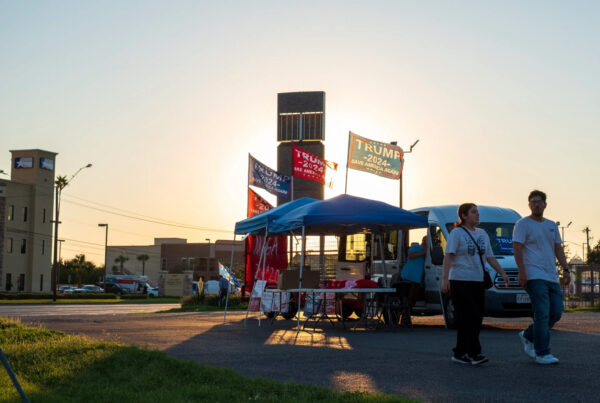Voters in a handful of states are voting right now on whether to put abortion protections in their state constitution. These so-called ballot referendums have become increasingly popular since the Supreme Court effectively overturned Roe v. Wade.
Some of the states considering making abortion access part of the state constitution are those primarily led by Republican lawmakers. But the reason it’s up for a vote is because of a process called citizen-led ballot initiatives.
In Texas, there is no avenue for citizens to put initiatives on the ballot. Though Texas does go to voters for constitutional amendment referendums, these issues have to be put on the ballot by state lawmakers – not citizens gathering signatures.
To understand why Texas does not have a citizen process for ballot initiatives, we have to go back to the early 1900s, according to Chris Melody Fields Figueredo, executive director of the Ballot Initiative Strategy Center. The organization supports state-level groups seeking citizen ballot initiatives.
“It started mostly out west … during the progressive era, when the robber barons had a huge stranglehold on a lot of state legislatures,” Fields Figueredo said. “And this sort of became a tool that was created to give citizens more power.”
Back when these ballot initiative policies were getting popular, Texas was among the states considering one. But in 1914, voters here shot down a proposal that would have given them the power to put statewide initiatives on the ballot.
Jim Henson, the director of the Texas Politics Project at UT Austin, said this was because the progressive reformist movement wasn’t very strong in Texas.
“The elite in Texas that had its roots in the pre-Civil War period had very effectively reasserted control over the state,” he said. “They were largely against this.”
» MORE: When will Texas election results come in? Here’s how the process unfolds.
The idea hasn’t been forgotten, though. Just last year, Democratic state Sens. Nathan Johnson of Dallas and José Menéndez of San Antonio introduced a citizen-led initiative bill. It didn’t get very far, but Johnson said he wanted to put the idea out there.
“It is patently obvious that the Legislature is considerably out of step with the opinion of the public on major, major issues,” Johnson said. “Medicaid expansion, abortion rights and other reproductive rights, and even things like casino gaming.”
Johnson feels citizen ballot initiatives reflect broad popular opinion and increase accountability for lawmakers. He said there’s a reason there isn’t a political appetite for making this possible in Texas.
“If the ruling party faction were to put this to the public, it would be an embarrassment, because it would be a rejection of the policies they have clung to for a decade or more,” he said. “It would be a public repudiation of their governance.”














